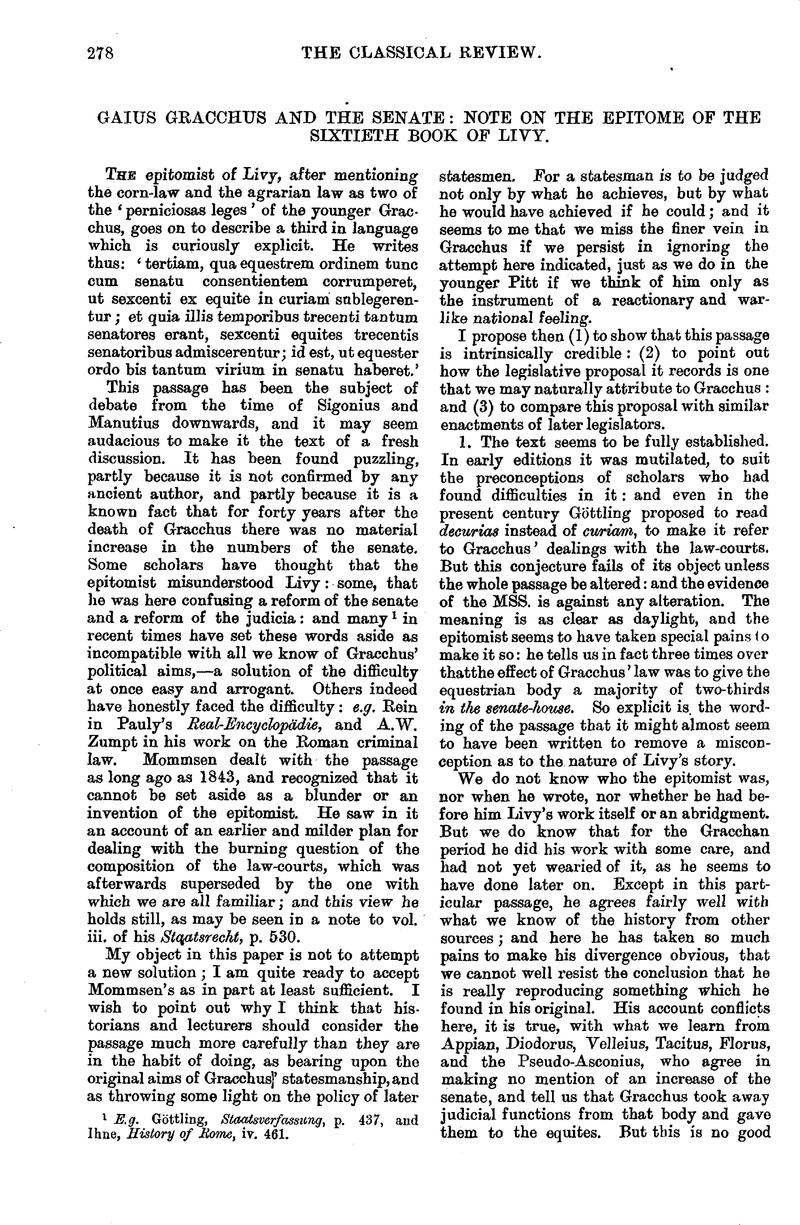No CrossRef data available.
Article contents
Gaius Gracchus and the Senate: Note on the Epitome of the Sixtieth Book of Livy
Published online by Cambridge University Press: 27 October 2009
Abstract

- Type
- Review Article
- Information
- Copyright
- Copyright © The Classical Association 1896
References
page 278 note 1 E. g. Göttling, Staatsverfassung, p. 437, and Ihne, History of Rome, iv. 461.
page 279 note 1 It may be objected that the motive which the epitomist attributes to Gracchus does not fall in with this view : ‘qua equestrem ordinem tunc cum senatu consentientem corrumperet.’ But (1) the attribution of a motive is of very different value from the statement of a fact: and (2) in any case this law would have destroyed the monopoly of power possessed by the nobility, through the agency of the equites. It is in this light that Plutarch represents Gracchus himself as regarding it.
page 279 note 2 Vita C. Gracchi, ch. 6.
page 280 note 1 Appian B. C. i. 35 ; the new members were to be 300. In this case the epitomist only mentions an amalgamation of the orders in equal numbers as judices. Liv. epit. 70.


